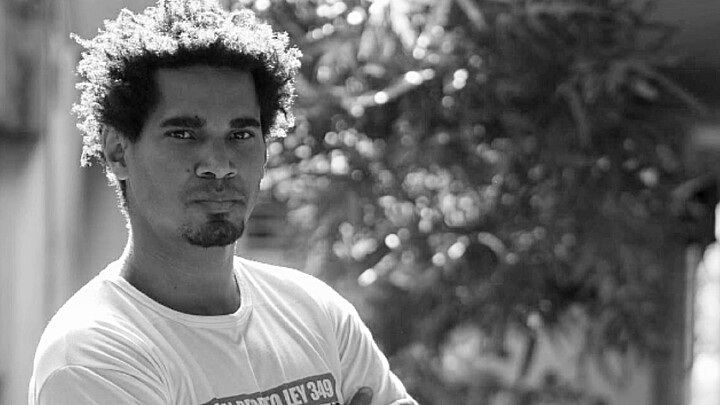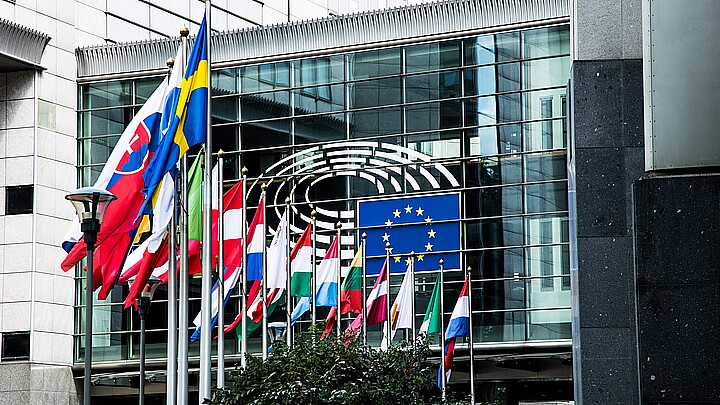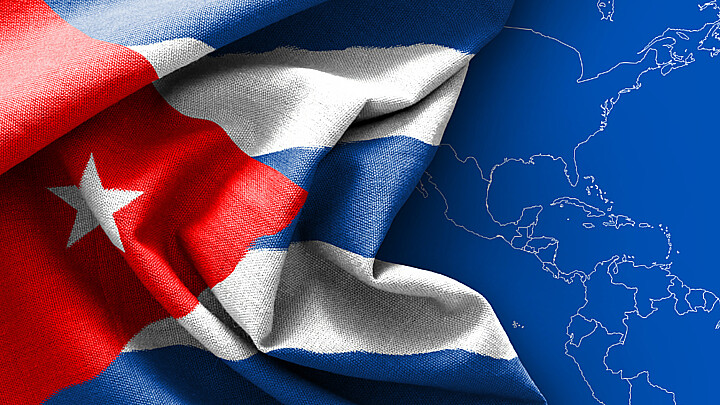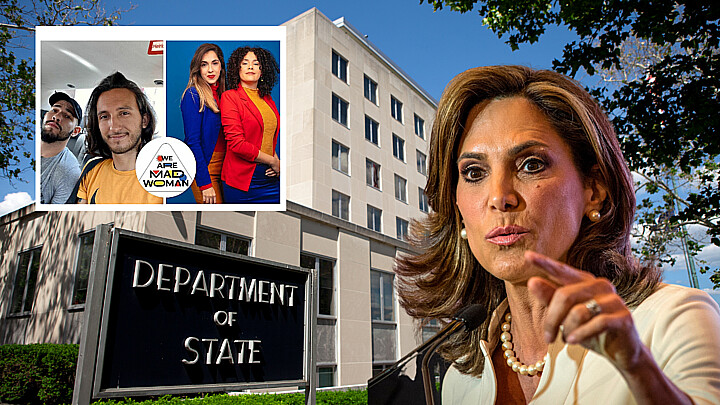Human Rights
Exiles and former U.S. intel accuse Havana of luring Cuban youths to fight for Russia against their will
The Ministry of Foreign Affairs acknowledged that there are "human trafficking operations for military recruitment purposes" involving Cubans in Russia
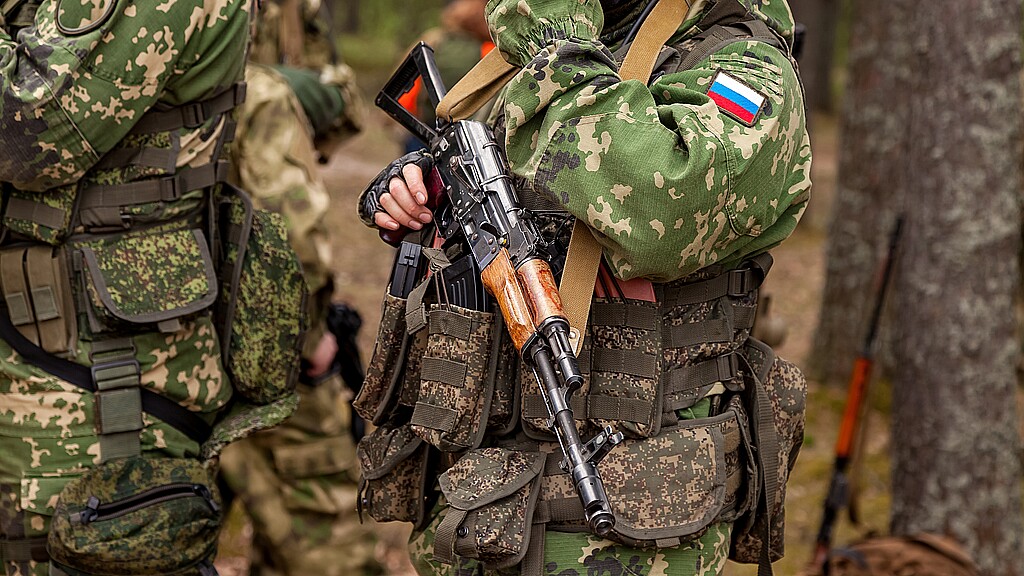
September 7, 2023 11:59am
Updated: September 7, 2023 1:11pm
Cuban exiles and former U.S. intelligence officers lashed out against the Havana regime this week, dismissing its claims it is looking into "human trafficking operations for military recruitment purposes" in Russia. The Cuban communist regime made the claims after independent media reported that Russia had sent at least 200 Cuban youths to fight in Ukraine.
The exiles' response came shortly after the Cuban Ministry of Foreign Affairs (Minrex) released a statement on Monday, asserting that there are human trafficking groups in Russia targeting Cubans living there and on the island, forcing them to support the Kremlin’s invasion of Ukraine.
That narrative however, has been disputed by several ranking Cuban exiles and a top former U.S. counterintelligence officer who captured Cuban spies.
In an exclusive interview with ADN Cuba, Elsa Barreto said her 19-year-old grandson, Alex Rolando Vega Díaz, was deceived in Cuba by a woman who offered him a professional opportunity to do construction work in Russia.
Barreto told ADN Cuba that her grandson always had lung problems, which prevented him from doing his mandatory military service in Cuba, which means he lacks military training and has no experience in handling weapons.
However, Barreto claimed that once in Russia, her grandson was warned that he could be imprisoned if he refused to comply with Moscow's demands.
Russia sending young Cubans to front lines as human shields
"He called me once or twice and told me he is very afraid," Barreto said.
Cubans are usually deployed on the front lines of the battlefield, used effectively as human shields, while Russians stay behind, her grandson explained.
Desperate to survive, her 19-year-old grandson and his friend Andorf Velazquez Garcia tried to escape to Poland. However, they were caught by the Russians and physically abused and roughed up. They both ended up in a hospital in Russia for a month, she said.
"They have already suffered two beatings. The second occurred when my grandson tried to communicate in English and they accused him of being a U.S. spy," she added.
The statement issued by the Havana military dictatorship comes days after America Tevé published several reports of young Cubans who allegedly signed contracts to perform construction work related to the war in Ukraine but were instead recruited by the Russian army.
"Please help us, please try to get us out of here as quickly as possible, because we are afraid," Alex Rolando Vega Díaz told the media.
The two young men returned to the Russian military base in the city of Ryazan after being hospitalized, according to reports.
"They beat us. They took off all our clothes and beat us for fun. Because we spoke to them in English, they told us that the Americans had sent us here and that we should confess," he added.
Minrex claimed that "attempts of this nature have been dealt with and criminal proceedings have been initiated against individuals involved in these activities."
The island’s regime defended itself by claiming that "Cuba is not part of the war in Ukraine" and that these were claims that their “enemies” were making.
Former DIA counterintelligence officer and Cuba expert Chris Simmons told ADN that Havana's narrative was a standard operating procedure of plausible deniability used when they are caught: First they deny the allegation and then blame someone else to bolster the allegation.
"By its own admission, Cuba proudly remains a police state. As such, the provision of mercenaries to Russia occurs only with Havana’s knowledge and involvement."
Cuban exiles lash out against regime, allege human trafficking narrative is cover story
Several activists and lawmakers criticized the regime’s reaction.
Orlando Gutiérrez Boronat, Coordinator of the Assembly of Cuban Resistance (ARC) told ADN Cuba that this was "a second part of the Ochoa case. They are not denying the participation of Cubans because there is too much evidence, but they are blaming a criminal network. We will see who they sacrifice.”
For months, ARC has denounced possible links between Cuba and the Russian invasion of Ukraine, due to Havana’s strong alliance with Moscow.
Former Cuban political prisoner Luis Zuñiga told ADN Cuba that "as an addendum, it is good to remind the regime that they have been used as mercenaries in the past. The Soviets paid them for each soldier they sent to fight in Angola and Ethiopia.”
“In addition, the oil ‘transnationals’ paid the Cuban regime $1,000 a month for each Cuban soldier protecting the oil installations in Cabinda, an enclave belonging to Angola," he added.
U.S. Congressman Carlos Gimenez posted on Tuesday on his Twitter account that "for months, the communist dictatorship in Cuba has been recruiting young Cubans to fight as mercenaries for Putin's regime against the people of Ukraine. Let no one be mistaken about the macabre and murderous nature of the regime in Havana."
🚨Durante meses, la dictadura comunista de #Cuba ha estado reclutando jóvenes cubanos para luchar como mercenarios a favor del régimen de Putin en contra del pueblo de #Ucrania 🚨
— Rep. Carlos A. Gimenez (@RepCarlos) September 5, 2023
Que nadie se equivoque sobre la naturaleza macabra y asesina del régimen de La Habana.
ADN Cuba asked the State Department if it was aware of any allegations regarding the trafficking of Cubans for the Russian war effort, but an agency official said to consult the Cuban dictatorship on the matter.
Later, at a press conference, Vedant Patel, deputy spokesman for the State Department, said: "We are aware of these reports and are currently just trying to assess additional information. I have nothing to say about the veracity of the information provided in that statement, but we are continuing to investigate it."
Possible links between the Cuban regime and Russia’s invasion of Ukraine
In recent months, relations between Moscow and Havana seem to have become closer, with multiple visits from officials to both countries.
At the end of June, the Cuban Minister of the Revolutionary Armed Forces (FAR), General Alvaro Lopez Miera, visited Russia. During his visit, his Russian counterpart, Sergey Shoigu, said that Russia plans to develop with Cuba a series of projects related to the military-technical field.
"Undoubtedly, Cuba has been and remains Russia's most important ally in the region. Cuban friends confirmed their attitude to our country, even demonstrated their full understanding of the reasons for launching the military operation in Ukraine," Shoigu stated.
A few days later, Lopez Miera also traveled to Belarus and met with that nation's defense chief, Viktor Jrenin, to develop the military cooperation between the two countries.

